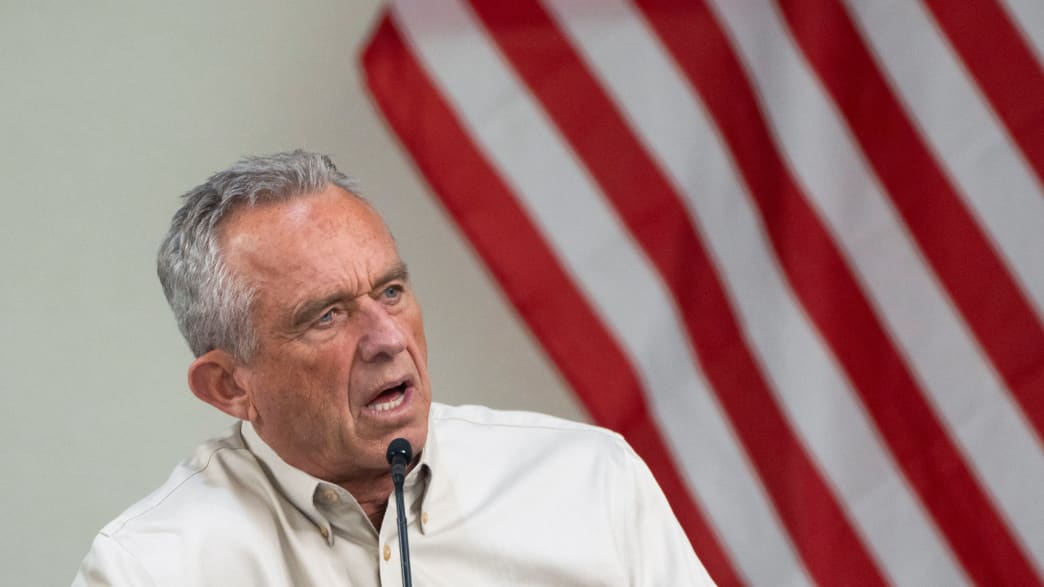House GOP Highlights Key Wins In $895B Defense Budget Proposal
In a strategic move, the House GOP has outlined significant accomplishments in the 2025 National Defense Authorization Act, targeting diverse military and national security enhancements.
The newly detailed GOP memo showcases their triumphs in the NDAA, emphasizing military readiness and border security while cutting back on diversity initiatives, Fox News reported.
The House GOP recently released a comprehensive 16-page memo. This document serves to highlight what they consider major victories in the annual defense policy bill, which includes a notable budget of $895.2 billion aimed at enhancing national security and defense capabilities.
Released on a Saturday evening, the National Defense Authorization Act (NDAA) for fiscal year 2025 has sparked considerable discussion due to its bold policy directions. The NDAA primarily seeks to streamline military operations by eliminating what it calls "radical woke ideology," refocusing efforts on core military effectiveness.
The memo criticizes current diversity, equity, and inclusion (DEI) initiatives within the military, leading to a Pentagon hiring freeze for DEI roles. Moreover, it halts all recruitment for such positions pending a thorough investigation into the Pentagon's DEI programs.
Strategic Adjustments in Military Spending
Another significant change brought about by the NDAA is the prohibition on the Defense Department from engaging advertising firms that deliberately exclude conservative news outlets. This move underscores the ongoing debate over media bias and military engagements with the press.
The NDAA also sees a reduction in funding for initiatives aimed at addressing extremism within the ranks. This aligns with the GOP's focus on enhancing straightforward military readiness over sociopolitical matters within military spheres.
In terms of environmental and climate policies, the NDAA pulls back on authorization for climate change initiatives, which includes preventing any new climate-related guidance affecting weapon systems procurement and operations.
Enhancements to Troop Welfare and Border Security
The bill notably authorizes the use of National Guard troops to support the Border Patrol along the challenging southwest border, reinforcing the GOP's commitment to national border security.
Amid these strategic shifts, the NDAA proposes a substantial 14.5% pay raise for junior enlisted troops, a move likely to boost morale and financial stability among service members. Additionally, the bill aims to improve access to child care and bolster job support for military spouses, acknowledging the everyday challenges faced by military families.
Despite the broad scope of the NDAA and the sizable funds it directs, which represent a mere 1% increase over the previous fiscal year, it reflects a clear redirection of priorities following the GOP's significant electoral victories in 2024.
Partisan Responses and Legislative Outlook
While the NDAA is expected to pass with broad bipartisan support, it has not been without its critics from both ends of the political spectrum. Some progressives and a few conservatives have voiced concerns over various aspects of the bill, particularly its stance on social issues within the military.
One of the more contentious elements of the NDAA is the ban on funding for transgender medical treatments for minors, which has ignited partisan debates. This measure is cited by GOP leaders as a necessary step towards refocusing the military on its primary objectives.
According to the House Armed Services Committee's memo, "The [fiscal year 2025] NDAA builds upon the gains made in the FY24 NDAA to end the radical woke ideology being forced on our servicemen and women and restores the focus of our military on lethality."
Diverse Perspectives on Defense Priorities
Rep. Adam Smith, a Democrat from Washington, criticized the Republican approach, stating, "It’s the Republicans taking advantage of a partisan wedge issue." His comment highlights the ongoing tension between differing visions for the future of the U.S. military.
Conversely, Speaker Mike Johnson, a Republican from Louisiana, defended the legislative changes, emphasizing that the bill is crucial for confronting threats from adversarial nations. "We remain determined to confront increasingly hostile threats from Communist China, Russia, and Iran, and this legislation provides our military with the tools they need to deter our enemies," said Johnson.
As the NDAA heads to a vote within the week, all eyes are on Congress to see how these broad defense strategies will play out in a highly charged political atmosphere, potentially reshaping America's military focus for years to come.






